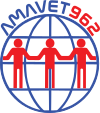Workshops
Geographical Data through Augmented Reality Technology – Discussion on Possibilities, Challenges, and Research Demand (Gerhard Navratil, Senior Researcher @ research group Geoinformation, Department of Geodesy and Geoinformation, Vienna University of Technology
Augmented Reality (AR) is a novel technology that allows to connect data and the real world. In Hollywood productions, AR and similar technologies are frequently used, e.g., in Iron Man, Bones, and CSI:Cyber are just a few of them. AR is also used to visualize various aspects in sports broadcasting, e.g., offsides in soccer, the first down line in American football, the jump length in ski jumping, time and intermediates in skiing, etc. In principle, the technology is applicable to geographical data as well to support space related decisions. However, a number of questions immediately arises when thinking about implementation:
- How can we use AR for geographic information?
- What kind of interaction is necessary, what is already implemented in AR hardware?
- What are the challenges to bring AR from the lab into the real world?
- What are scenarios where AR could be used?
After a brief introduction of the technology and the presentation of videos showing current experiments in Vienna, the participants will discuss ideas around the technology. This will include aspects connected to above questions but may also exceed them.
Target audience are master students and PhD candidates looking for thesis topics, PhD students and PostDocs looking for ideas in relation to their research interests, and practitioners who want to see opportunities and challenges.
Statistical inference on mobile phone network data (Martinj Tennekes, Data Scientist at Statistics Netherlands)
The network of mobile phone antennas generate a massive amount of data. Events related to mobile phone use and movement are logged in what is called Call Detail Records (CDR) or signalling data. The former is used for billing customers, the latter for network analysis. These data can be also used for statistical purposes, for example statistics on daytime population, tourism, commuting patterns, and social networks. During this workshop, you will learn how to process mobile phone network data, and how to use them for statistical purposes. An important aspect is deriving the geographic location of devices. Typically, only the connected antenna (cell) is known. We introduce a Bayesian approach to estimate a geospatial probability distribution per antenna. Next, we will describe techniques to aggregate and calibrate mobile phone network data in order to estimate population counts. This is needed since all statistical output is based on persons rather than mobile phones.
Gentle Introduction to Data Science: A Hands-On Workshop (Blaž Zupan (Univ. Of Ljubljana, Slovenia))
Useful data is all around us, and capturing vast amounts of data is easier than ever. Skilled data scientists are less ubiquitous than data. Data science has become increasingly challenging, and to master it, one needs a deep understanding of math, statistics and computer science. This complexity drives away many potential data explorers and consumers, leaving the joy of data-based discovery to a few enlightened gurus. In this workshop, we will argue that -- after a few hours of training -- virtually anyone can do data exploration and machine learning. Besides curiosity and a good mentor, though, an essential part of such endeavor is the right tool. We will claim that interactive visualizations, visual programming for construction of workflows, and linking-and-brushing type of interactivity can empower anyone curious about their data. We will show how we can employ a small number of components -- the Lego bricks of explorative data analysis -- to construct powerful workflows to solve them all. We will go through cases of clustering, data projection, and supervised learning. The workshop will use Orange, a data mining framework, and participants are welcome to download and install it from http://orange.biolab.si to follow along. The presented practical cases from will, among other, include geo data mining and image analytics.
Web scraping dat v Pythonu (RNDr. Jan Caha, Ph.D.)
Množství dat dostupných v nejrůznějších podobách online relativně rychle roste. Mnoho z těchto dat není přístupných skrze otevřená API či ve vhodných formátech. Zejména data prezentovaná přímo v rámci webových stránek často představují zajímavý zdroj informací, který je ale často obtížně využitelný buď z důvodu formátu nebo objemu prezentovaných dat. V rámci semináře budou prezentovány možnosti využití Pythonu a jeho knihoven pro automatizovanou extrakci dat z webových stránek. Seminář předpokládá znalost programování v Pythonu a alespoň zběžnou orientaci ve webových technologiích (HTML, CSS, JavaScript etc.).








